Michael Walters
Notes from the peninsula
Welcome!
This is my little word garden on the internet—Michael Walters, author (it’s true!). I have a speculative fiction novel, THE COMPLEX, out with Salt Publishing, and I’m deep in the writing of a follow-up. I would love it if you gave it a try.
I use Bluesky to connect with people, Letterboxd to track films, and StoryGraph to track books. Follow me and say hello in all those places.
And if you want more of my thoughts on writing in particular, you can subscribe to my posts on PATREON. There’s a Weird and Wonderful tier if you want to support me with a donation, and that now includes notes on the novels I’m reading, but I post regularly to all patrons.
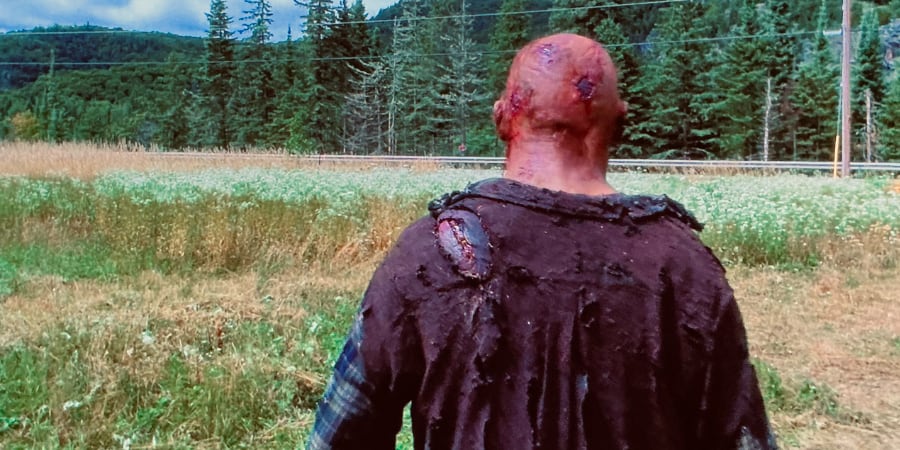
In a Violent Nature
Director: Chris Nash
Release year: 2024
It’s rare that a film comes along in the horror space and asks questions about the form. Cabin in the Woods did it back in 2011, and this does it with the slasher genre, subverting its conventions in pointed and interesting ways. I knew too much in advance of seeing this for it to be a surprise—I can imagine this would have been even more impactful if I’d gone in blind.
A group of teens explore woods where a man, Johnny, was killed decades before, and find a locket hanging on a pipe in an abandoned hut. One of them takes the locket for his girlfriend, not realising it’s on Johnny’s grave. Johnny climbs out of the earth to methodically track the teens through the woods to get the locket back, picking them off in increasingly violent ways.
The camera tracks Johnny from behind for most of the film. It’s a video game point of view that goes back to the original Lara Croft. Nature is ever-present on the soundtrack, with bird calls, the crunch of grass underfoot, wind in the trees, the buzz of flies, but all Johnny is listening for are human voices and car engines. At the ranger station he looks at the displays and lifts a photograph. When he walks into a house and sees a similar locket, he remembers his father giving it to him as a symbol of love from his mother.
The only character of note amongst the teens is Kris, accidental holder of the locket, who sees Johnny’s bottomless pool of rage at the locket’s theft, and who wisely leaves it for him to collect. On the road, she’s picked up by a woman who tells a story about the random violence of bears, but that’s a misdirection—we’ve seen the killer is not random, has suffered terrible losses, and his fury doesn’t stop even in death.
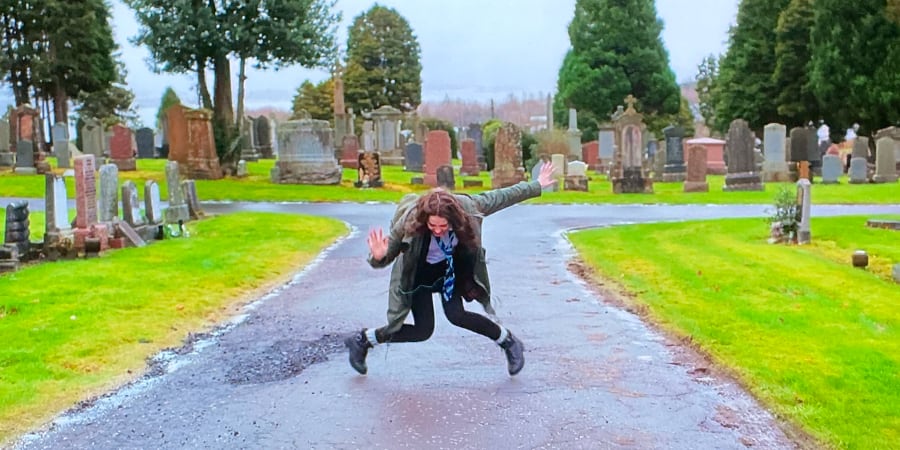
Anna and the Apocalypse
Director: John McPhail
Release year: 2017
Staying festive, a Scottish zombie musical about a girl longing to escape a small town, the tricky relationships we navigate as teenagers, with peers, parents and teachers, and the power of musical theatre to kill the undead.
Anna has bought a flight to Australia in her gap year without telling her dad. Her friend John has a secret crush on her and, while he wants to go to art school, doesn’t want her to go so far away. Steph’s parents have left her alone for Christmas. The three band together with a handful of others to try to escape the hordes of zombies attacking their town.
The songs and choreography are decent, but I’m no musical aficionado, and that didn’t stop the gore from being intense when they use whatever they can get their hands on to crush undead heads. It’s heartfelt, and the youngsters suffer real hardship in the second half, so it becomes increasingly bleak. Ella Hunt should be in more films, she’s luminous here as Anna, and so is Paul Kaye as increasingly unhinged headteacher Arthur Savage.
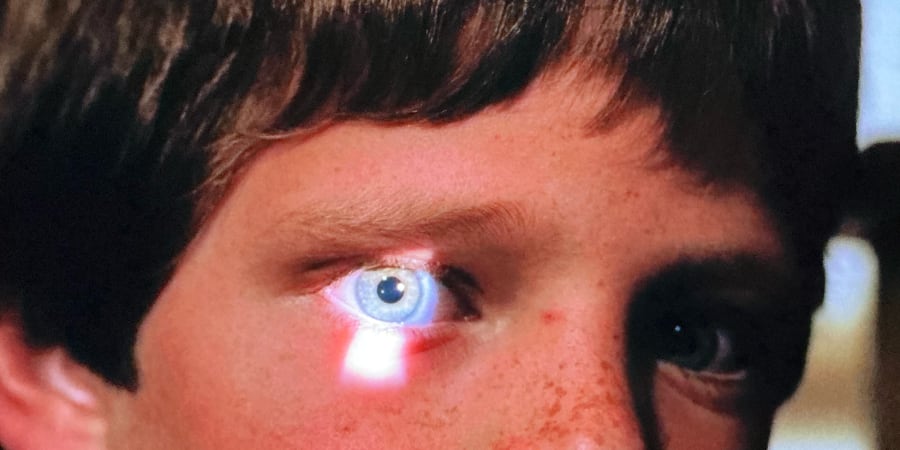
Director: Charles E. Seller Jr
Release year: 1984
On the way home from visiting his grandfather on Christmas Eve, young Billy Chapman watches his parents slain by a robber dressed as Santa Claus. At an orphanage, Billy is punished repeatedly by the Mother Superior for not coping with the trauma. His first job at eighteen is at a department store, and when Christmas Eve comes and Billy has to dress as Santa Claus, wearing the costume triggers his own killing spree.
This is a surprisingly rich stew of repressed trauma and violence that manages to be brutal, odd, amusing and quite moving in places. The child actors are excellent. In the opening scene, Billy meets his hospitalised grandfather, who terrorises him with the idea Santa Claus punishes children who are not perfect. He then witnesses the murder of his parents that includes the sexual assault of his mother by an unhinged assailant in a Santa Claus costume. Later, at an orphanage, he is punished for making a violent drawing, and when he observes through a keyhole a nun having sex with her boyfriend, he hears them beaten with a belt by the Mother Superior.
Billy learns through beatings to keep his mouth shut. It’s both funny and tragic that his homicidal rage comes out as Father Christmas. Violence, sex and Santa Claus make a combustible combination! In one chillingly amusing scene, a girl refuses to admit any naughtiness and so, unable to punish her, Billy begrudgingly gives her his blood-covered knife as a gift. The same scene in Christmas Bloody Christmas results in a more modernly obnoxious child getting an axe to the head. I prefer the original.

Director: Joe Begos
Release year: 2022
A grimy, low budget, fun-but-annoying mashup of Terminator, every sleazy slasher ever, a hangout movie, Texas Chain Saw Massacre and… First Blood? I don’t want to criticise too hard because it’s clearly a labour love made with no money and some ingenious effects to bridge the funding gap.
Tori runs a record/video store in a small Californian town. It’s Christmas Eve, it’s snowing, and she has a Tinder date lined up. Her clerk employee Robbie convinces her to spend the night getting drunk with him instead. Neither of them have accounted for the malfunctioning military-grade RoboSanta that is at the local toy store, and when they meet friends there after hours for a festive drink, the robot sets its sights on killing them all.
The first thirty minutes is an improvised hangout movie, and the banter between Tori and Robbie, which is natural and fun to a point, tips into annoying and expletive-laden posturing, so that when the killer RoboSanta arrives it’s a relief they stop talking. An unexpectedly disturbing sequence where the couple have sex while the robot slaughters the family next door, with the edit cutting back and forth, is a particularly odd choice.
There’s a police ex-boyfriend, a joke about pegging, real explosions, Tori screams a great deal, the robot just won’t die, etc, etc. It was clearly made with a ton of love and enthusiasm and about $10,000.
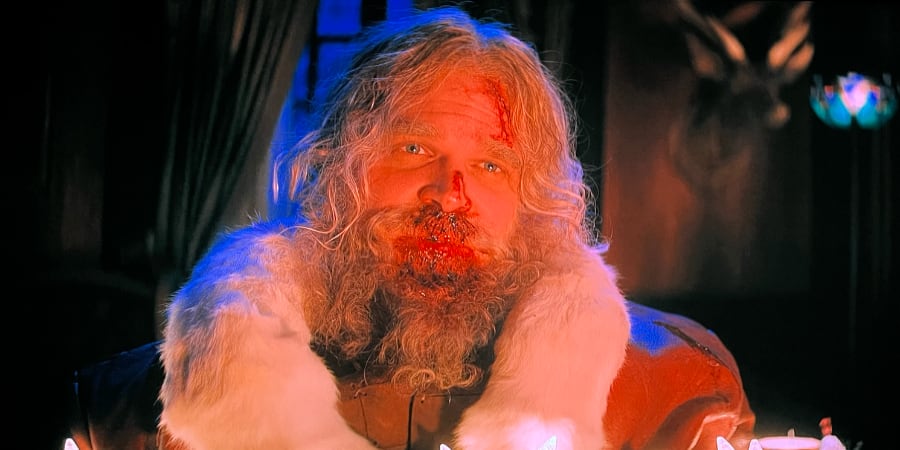
Violent Night
Director: Timmy Wirkola
Release year: 2022
Santa Claus is drunk in a bar, despairing of children’s greed, and thinking about giving it all up. While delivering presents to a rural mansion, he interrupts a robbery, and to save good girl Trudy he has to call on his skills as a Viking warrior.
You can imagine the pitch—Die Hard meets Home Alone with Santa—and it plays out exactly like that. There are some outstanding fight scenes between Santa and the mercenary military home invaders, but the first half is a struggle because it’s not as amusing as it thinks it is, the characters are annoying, and you just want to see Father Christmas fight people. Once he gets his sledgehammer, it becomes far more fun.
It’s exceptionally violent. There’s a sequence where the girl, Trudy, hides in the attic and sets a series of Home Alone traps, and the ensuing mutilations are grim and hilarious. There’s a heart of gold beneath the broken jaws, cracked limbs and decorations in eyeballs, I just wish it was twenty minutes shorter.
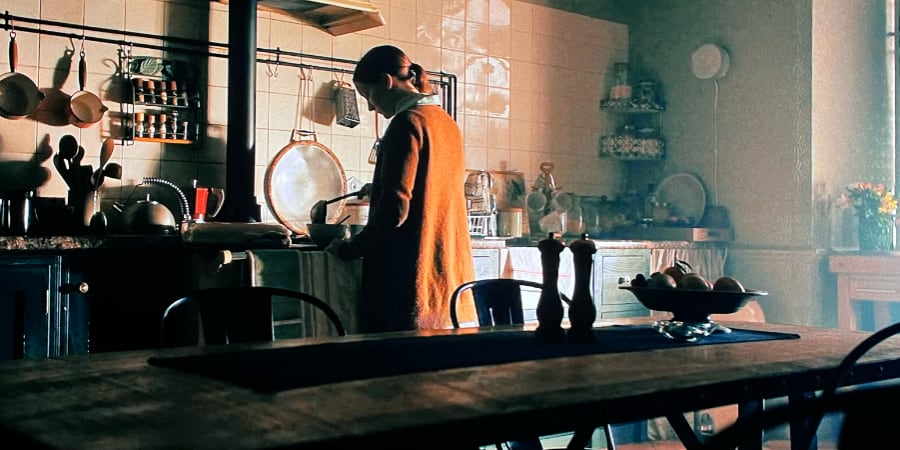
Saint Maud
Director: Rose Glass
Release year: 2019
Maud, a private nurse from a care agency, starts a new job looking after acclaimed dancer Amanda who has Stage 4 cancer and is close to death. Amanda still lives a hedonistic, drama-filled life which clashes with Maud’s newfound faith. When Amanda affectionately calls Maud her saviour, Maud takes this as a sign to try and save Amanda’s soul.
This is writer and director Rose Glass’s first film, and with cinematographer Ben Fordesman, she makes Scarborough, which is not far from where I live, shine with a (forgive me) religious light. Morfydd Clark’s Maud is a terrible delight, oscillating between a lost, unsure woman with a troubled past and determined follower of the voices in her head. It’s disturbing to see reality flex under Maud’s psychosis.
Amanda is a fascinating figure, bored with dying, used to a far more social and exciting life, and stuck up in a big house on the cliffs. She’s already halfway to heaven, but Maud can’t let her be, confused by Amanda’s sexuality when she has her own orgasmic relationship with God, and convinced she needs saving from damnation before she dies. Amanda calls out Maud’s meddling in front of friends at a birthday party—her scorn comes back to bite her.
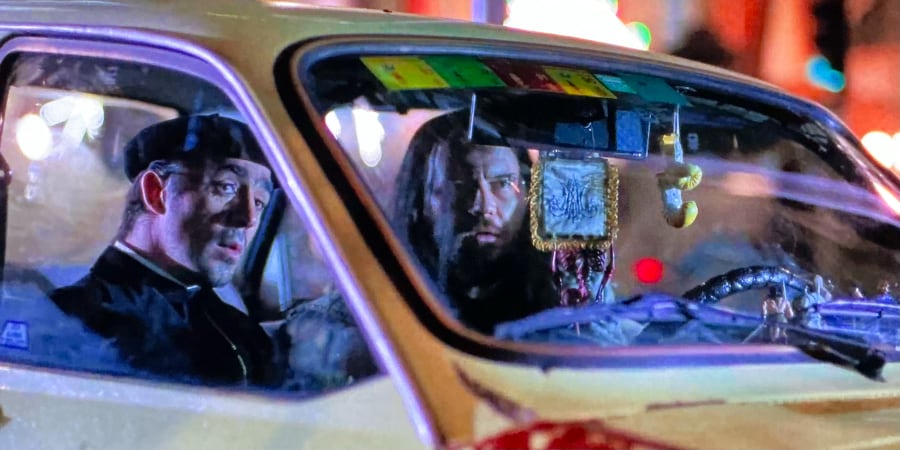
The Day of the Beast
Director: Álex de la Iglesia
Release year: 1995
The first real Christmas movie of my #31DayofBlackXmas, it’s a real horror comedy to repair the damage of Polanski’s vampire farce. A priest thinks he has solved the puzzle of when the Antichrist will be born, and goes to Madrid to stop it which involves giving his soul to the devil.
The genius of this film is that it’s funny, but not too funny, and grim to just the right level, and director Álex de la Iglesia shoots with a strong streak of Almodóvar. The dialogue is sharp, the action anarchic, the horror served reverently even when surrounded by comic actors.
The threesome of the priest, record shop metal head and conman Satanist makes for surreal, violent fun. To sell his soul, the priest has to do evil deeds, and do them he does. There are a couple of moments of true devilish horror scattered throughout, including the devil as a horrific goat, and a homeless man being burnt alive as a symbol of the coming apocalypse. Surprisingly excellent.
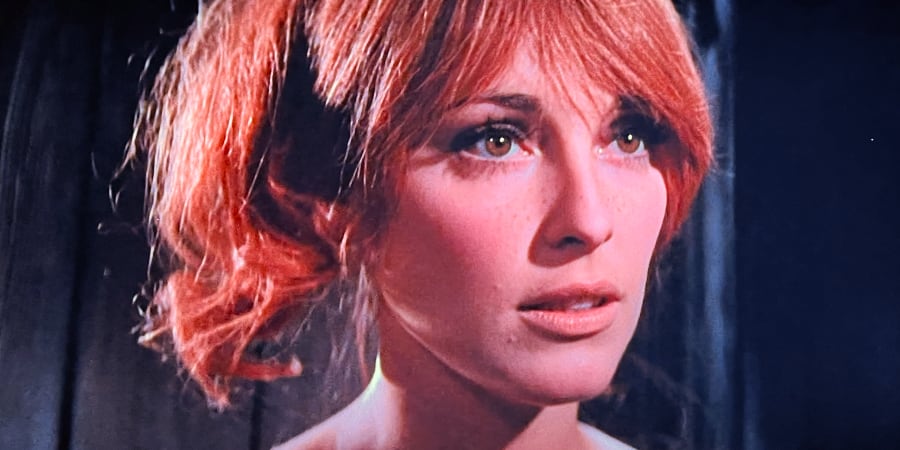
Director: Roman Polanski
Release year: 1967
I wanted something light. I remembered not enjoying this a few years back but loving it as a kid, so I gave it another go. It’s a farce based on a mixture of Hammer horror and Universal Monsters. Roman Polanski directed such amazing films in this period, but this is still disappointing on second watch.
The set design and consumes are wonderful. Watching these shallow comedic characters flap around is made more bearable when the locations look so exquisite. Sharon Tate is luminous, some of which is because we know her fate not long after this was made, but also she shows great comic timing in her role as the captured daughter of the innkeeper our intrepid non-heroes are staying with.
It’s the pacing that kills it. There’s not much story because it’s a pastiche, deliberately similar to all that’s come before. The characters spend too much time running around the beautiful sets and being too goofy for my taste. I did enjoy the arrival at the inn after recently watching Peter Cushing’s Van Helsing rock up at the original in Terence Fisher’s Dracula.
This is broad, obvious slapstick comedy with strong Jewish roots. The actors seem to be having fun, but I didn’t find it funny, which is a killer blow for a comedy. I did admire lots of the camera work and character comedic details though. It was more enjoyable than last time, I’ll give it that.
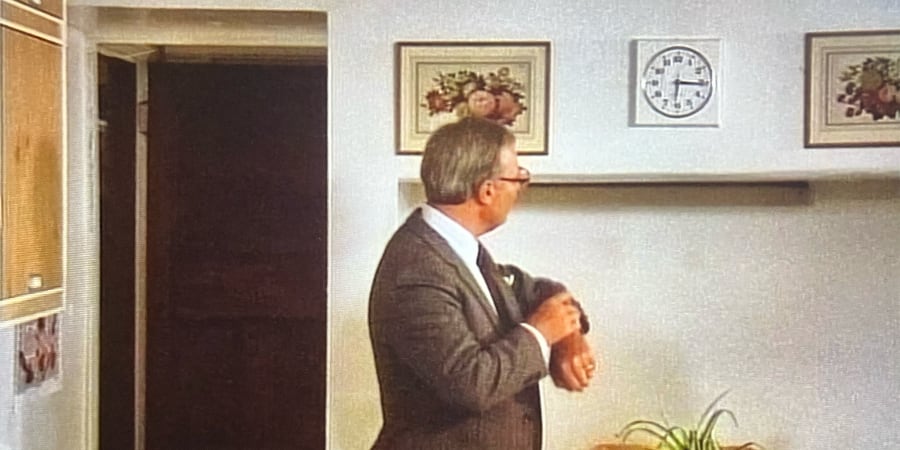
The Appointment
Director: Lindsey C. Vickers
Release year: 1982
Ian and Dianna live a comfortable existence with their daughter Joanne in a rural English town. The local wood has been fenced off to stop schoolchildren walking through it after a girl was murdered in it three years before. Ian has to tell Joanne that he’ll miss her big musical recital because his company is sending him away the next day for an urgent meeting, triggering a night of anxious dreams and possible premonitions.
The opening five minutes are properly disturbing as we follow a schoolgirl on a path through some woods after we’ve heard words from a police report describing her death. The way she’s pulled into the trees by an unseen force is terrifying and looks amazing, even on such a low budget in 1982. Joanne regularly talks to someone through the fence sealing the wood after school, and it’s unclear if it’s the ghost of the dead schoolgirl or something else.
Joanne isn’t just a daddy’s girl, her relationship with her father is uncomfortably intense, which he brushes off to his wife, but she is clearly bothered by. Joanne is fourteen and seems to always get what she wants from Ian, and in an angry scene Dianna tells him that their family is out of balance and Joanne has created for herself a dangerously delusional world. Ian seems perplexed and disbelieving, but it could also be interpreted that there’s something sexual between him and his daughter, and he has certainly mixed his daughter with his wife unconsciously, and Dianna’s picked up on it.
All of which gives the second half of the film it’s bite. Whatever is in the woods, through Joanne, attacks Ian through woozy dreams and nightmares that blur with their nightly reality. As Ian sets off on his long trip away from his family, the ending seems inevitable. This is a film about minding boundaries. If you don’t, whatever is in the woods will get you.
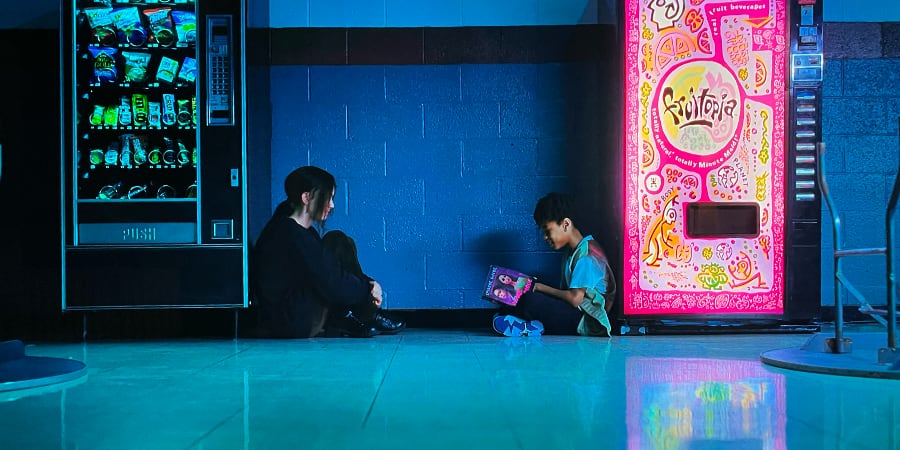
I Saw the TV Glow
Director: Jane Schoenbrun
Release year: 2024
Nostalgia is both comforting and soul crushing. Owen bonds with Maddy over a TV show she’s obsessed with, The Pink Opaque. Maddy is miserable in her life, and decides to run away from home, giving Owen a choice that will affect the rest of his life.
Owen is suffocated at home by a father he’s terrified of. His mother is protective but terminally ill. In Maddy, he finds a kindred spirit, someone who understands him and will leave him videotapes at school when his father won’t let him stay up to watch his new favourite show. Owen is full of confusion and self-doubt over his sexuality. Watching The Pink Opaque, as dark and insidious as it is, he feels safe.
The Pink Opaque is about two friends, Tara and Isabel, who share a psychic connection with each other, have pink ghosts tattooed on their necks, and are in a good-versus-evil battle with a moon-faced Mr Melancholy. It’s a queer allegory, a trans allegory, and also an allegory for anyone who’s felt constricted and denied by the adult/capitalist/religious world.
Both Owen and Maddy work long hours in poorly paid jobs that snuff out their teenage playfulness and curiosity. Only Maddy finds an escape route, and it’s not clear how real even that is. Owen’s final call for help, a scream of agony and despair, is zipped up and apologised for. It’s not enough to keep our real life alive on the inside. We all need help in being real on the outside too.